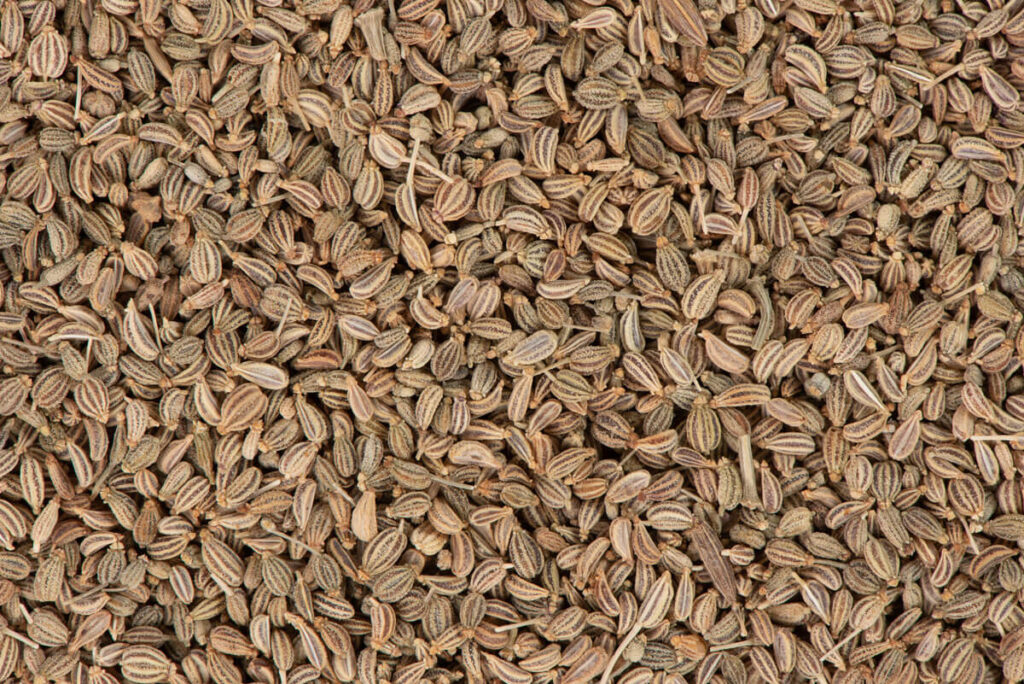Ajwain Seeds
Ajwain (also known as ajowan or carom), Trachyspermum ammi, is an annual herb in the family Apiaceae. It is believed to have originated in the eastern Mediterranean, possibly Egypt, and spread to India from the Near East. Both the leaves and fruit pods of the plant are consumed, with the fruit pods often referred to […]
Read MoreAbout Ajwain Seeds:
Ajwain (also known as ajowan or carom), Trachyspermum ammi, is an annual herb in the family Apiaceae. It is believed to have originated in the eastern Mediterranean, possibly Egypt, and spread to India from the Near East. Both the leaves and fruit pods of the plant are consumed, with the fruit pods often referred to as “seeds.”
Ajwain is sometimes called bishop’s weed, a common name it shares with several other plants, leading to occasional confusion. The small, oval-shaped fruit pods are pale brown and resemble caraway and cumin seeds. Ajwain has a bitter, pungent taste and a flavor profile similar to anise and oregano. The pods smell strikingly like thyme due to their thymol content, though ajwain is more aromatic and less subtle in taste, with a distinct bitterness and pungency. Even in small amounts, ajwain tends to dominate the flavor of a dish.
Specification of of Ajwain Seeds:
| Value | |
|---|---|
| Product Name | Ajwain Seeds (Bishop’s Weed) |
| Origin | India |
| Type | Machine Cleaned |
| Purity | 99% |
| Total Ash | 9.5% Max |
| Acid Insoluble Ash | 1.75% Max |
| Flavor | Aromatic with a penetrating flavor |
| Moisture | 10% Max |
| Salmonella | Absent / 25 Gms |
Container of Ajwain Seeds:
| Type Of Container | Quantity |
|---|---|
| 20′Fcl | 13.5 MT |
| 40′FCL | 27 MT |

